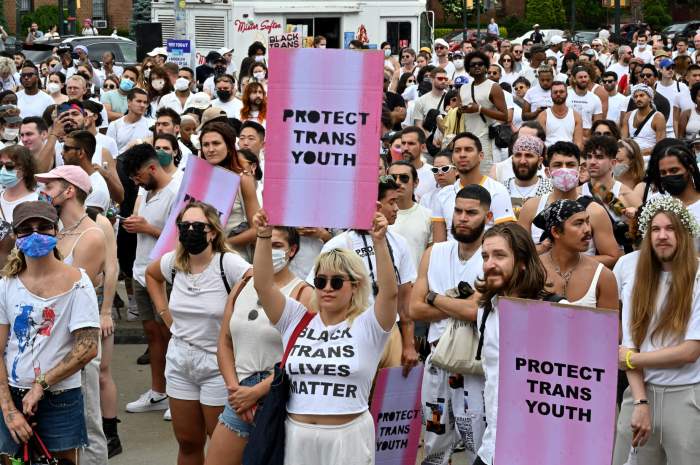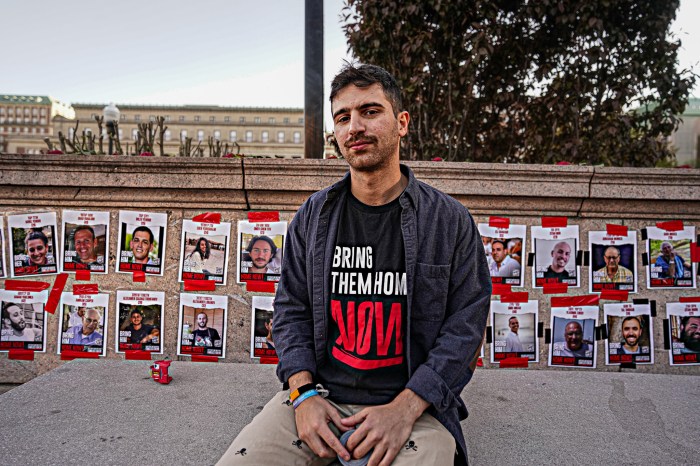BY NATHAN RILEY | The lightning-fast Eliot Spitzer sexcapade scandal was just breaking as I left on a weeklong trip to London but before I was back in New York the new governor, David Paterson, had already felt compelled to make unfortunate confessions about his own personal life. It was hard to arrive back home without considering the striking lack of privacy in the United States.
The British make no fond public embrace of prostitution or adultery, but their laws work to keep these issues in the background.
Both Britain and Germany have enacted comprehensive privacy protections, a package of rights that soften their laws governing drugs and prostitution. Prostitution arranged through the Internet is legal in England. And in the gay bars, rent boys let it be known they are in the game. Some do so in front of their friends. Among sexually active gay men, it is one possible profession.
Many Brits share a resentment with other Western Europeans toward East Europeans, whose countries recently joined the European Union, because they are willing to work for lower wages. Prostitution, I was told, was a way to earn a real wage in the face of globalization's dark underbelly.
Britain of course has a full safety net including generous unemployment benefits. These young Britons are not desperate, but they do feel sex work is a reasonable choice among limited economic choices. They favored legalizing prostitution because the trade has increased their sense of economic well-being and, critically, the relaxation of prohibitions enhanced their ability to work in safety.
Gay prostitutes I spoke to were well aware of the risks of disease, but said they get the advice they need from doctors and other sex workers about safe practices. This was hardly their most important concern.
They explained that the most important benefit of legalization is that it protected them from victimization. It allows them to collect when a john won't pay, they can go to the police for assistance or ask the website where they made the contact for help. The prostitutes took a very pragmatic view of this – freedom from criminal penalties for their work eliminated one of their key risks, arguments and even violence that begin with disagreements over the money agreed upon.
Boy George got caught up in the American justice system because he thought the NYPD would provide the same protections for a sexual transaction that British police do. He called the cops claiming his rent boy was trying to rob him. The prostitute in turn reported that Boy George had cocaine. For this the British singer was arrested, and then subjected to the humiliation of having the media follow him sweeping streets as part his community service for drug possession. Such public humiliation would be unheard of in Britain, and its absence is a sign of that nation's wisdom and civility.
The British system engenders respect for the law, even in the police willingness to intervene in sanctioning johns who try to stiff, so to speak, their rent boys. That approach allows the law to perform a basic function – resolving disputes between citizens in a civil manner.
What I learned as I listened to Brits chatter about New York's governors – current and former – helped me frame my own thinking. The wives of these two men were not happy that their husbands strayed, but neither seemed a hapless or passive victim. Spitzer's wife, in fact, urged him to fight rather than resign, with press reports indicating that her concern for her husband's well-being outweighed her anger. She watched his deterioration; a man who had always succeeded had trouble adjusting to failure. Her concern and support were no doubt helpful during a period of enormous stress in Spitzer's life.
All this suggests a complex and thoughtful reaction that lies outside the soap opera view that adultery always leaves the wife injured and resentful.
And of course our new governor wandered, but then so did his wife. Their marriage has survived. And early polls suggest that New Yorkers are adjusting to curious revelations that should never have become a public matter in the first place.
Thanks to the thorough work of an FBI Public Corruption Unit, we have a comprehensive look at an escort service. That business faces the most severe penalties under the theory that they profit from the misery of the women who sell their bodies. But anybody who reads the FBI summaries will see that the escort service served essentially as a broker between the women and their wealthy clients. The major concern voiced by the service regarded prompt payment and whether the client made unfair demands for unsafe sex. Their fears were answered by the woman's assurance that she could manage the guy.
Owners of escort agencies may well be domineering criminals, or they might just be business people. Some customers may show a criminal indifference to the prostitute, and some sex workers may be thieves. It is not something that can be decided by legislation; it is something that the law should handle as specific evidence comes to official notice.
In Britain, the law lets the participants step forward and present their case. The government is then free to resolve the dispute or even bring criminal charges. But officials don't decide the matter until all the facts are discovered. Only in a matter involving serious wrongdoing would the matter be brought to public attention.
A respect for privacy permits adults to navigate lives without forcing the law to intervene and interdict. With that as a guiding principal, respect for the law is enhanced. It is high time the US started imitating European practices.

































